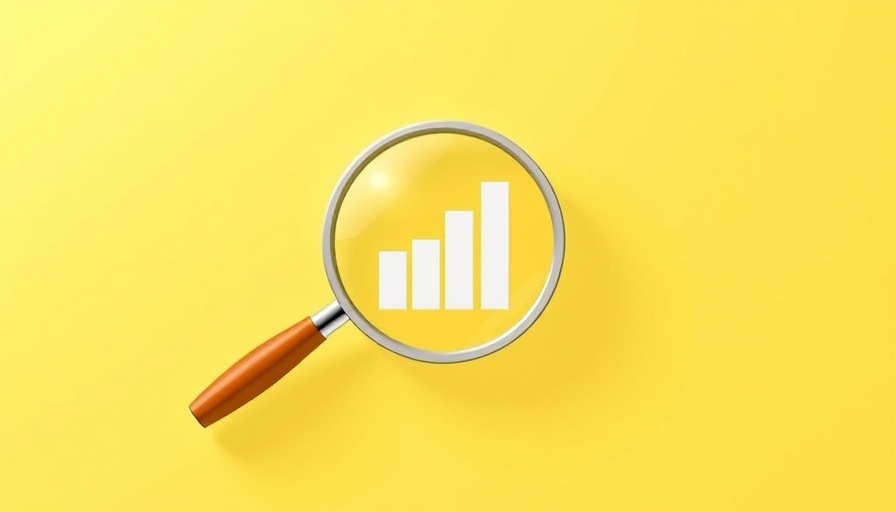
Is Keyword Targeting in Google Ads Losing Its Edge?
The digital marketing landscape is shifting dramatically, with emerging trends reshaping the strategies marketers have long relied on to reach their audiences. As professionals, business owners, and marketers, it’s crucial to ask: Is Google Ads keyword targeting dead? With the rise of artificial intelligence, changes in consumer behavior, and the advent of new campaign types, understanding the future of keyword targeting shapes how we approach online advertising.
Understanding the Shift: Why Keyword Targeting is Evolving
Keyword targeting has been a cornerstone of Google Ads campaigns, helping businesses connect with consumers at the moment of intent. However, as recent trends indicate, simply optimizing for specific keywords may no longer provide the comprehensive strategy required for success. For example, Google's impending changes for 2025, including the transition to Demand Gen Campaigns, signal a shift toward broader targeting methods that emphasize user intent over exact keyword matches.
Additionally, studies show that 15% of Google searches are entirely new queries, demonstrating a shift in how users are interacting with search engines. This means that traditional keyword strategies could become obsolete as we adapt to conversational search—users are no longer simply typing in isolated phrases; they’re speaking more naturally. Advertisers must now embrace wider keyword strategies that reflect this change.
Leveraging User Intent: A New Paradigm for Targeting
If keyword targeting isn't dead, it has certainly evolved. Adapting to this evolution requires a keen understanding of user intent. According to insights from industry leaders, focusing on broader keyword research and understanding the phrases that resonate with potential customers becomes paramount. By analyzing search behavior, marketers can adapt ad copy and landing pages that align with how users phrase their searches.
Additionally, AI and machine learning are invaluable here. These technologies empower advertisers to analyze vast amounts of data in real-time, optimizing campaigns based on user intent rather than rigid keyword structures. This approach enables a shift toward personalized and relevant advertising, leading to higher engagement rates.
The Rise of AI: Transforming Campaign Management
AI is revolutionizing Google Ads by enhancing campaign management and optimization processes. Automated bidding strategies, predictive targeting, and real-time adjustments mean that marketers can maximize return on investment while minimizing manual intervention. These advancements allow for a more dynamic approach to keyword usage—enabling advertisers to respond to performance data and user interactions promptly.
For instance, integrating first-party data into campaigns is becoming a necessity. This shift prioritizes the use of data collected directly from consumers, allowing marketers to understand their target audiences better. In this new advertising ecosystem, trust in data-driven insights becomes vital for campaign success.
Mobile Optimization: The Key to Reaching Today’s Consumers
As mobile devices increasingly dominate digital interactions, prioritizing mobile optimization has never been more critical. Advertisers must cater to mobile users whose behavior can significantly differ from desktop users. Ads need to be engaging, responsive, and seamlessly integrated with mobile experiences. Components like load times, visual appeal, and easy navigation are essential in capturing mobile traffic effectively. Google's mobile-first indexing further underscores the importance of this approach.
Strategies for the Future: What Can Marketers Do Now?
To navigate the evolving landscape and ensure Google Ads campaign relevance, here are some actionable strategies that marketers can implement:
- Embrace Broader Keywords: Consider using a combination of keyword types (broad match, phrase match, etc.) to capture an array of search intents.
- Optimize for Conversational Search: Tailor ad messaging to align with natural language queries that users are increasingly employing.
- Utilize AI in Campaign Management: Invest in smart bidding and automation tools to enhance targeting and ad performance.
- Focus on User Experience: Prioritize landing page optimization to meet the expectations of visitors and drive conversions.
The Final Word: The Future of Google Ads Yet to Be Written
As we explore the future of Google Ads, it’s clear that keyword targeting is not dead; it’s evolving. Understanding how to leverage user data, adopting AI tools, and refining targeting strategies will define success in this new digital marketing landscape. Staying attuned to shifting consumer behaviors and technological advancements will empower marketers to create relevant, impactful campaigns.
If you wish to stay ahead in the dynamic world of digital advertising, embracing these changes is essential for achieving optimal results. Ready to adapt your Google Ads strategy? Dive deeper into the future of your campaigns with continuous learning and application of these evolving practices.
 Add Row
Add Row  Add
Add 




Write A Comment